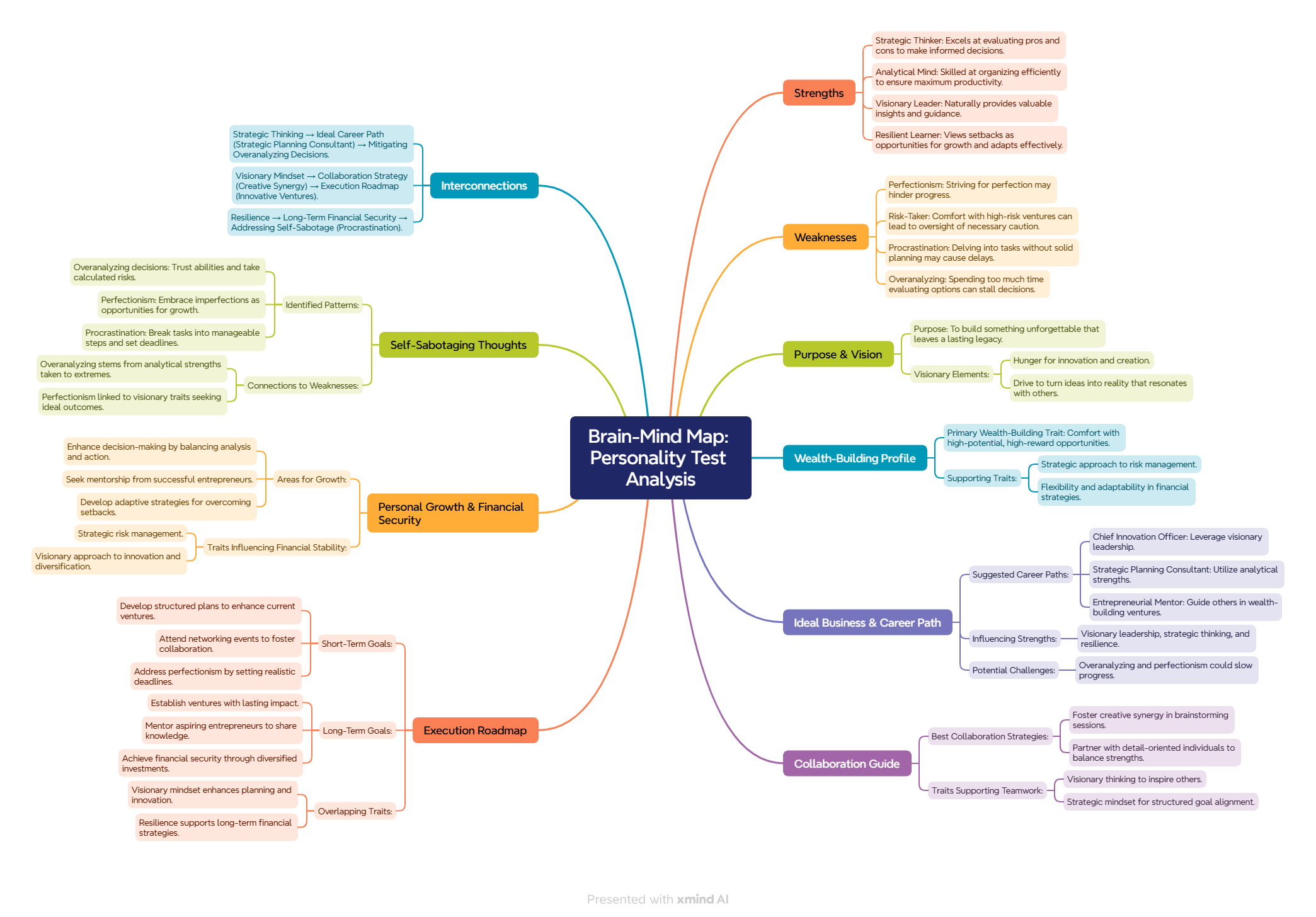Introduction to Early Onset Dementia
Dementia refers to a broad range of cognitive disorders characterized by a decline in memory, reasoning, and communication skills that significantly interferes with daily life. While dementia is often associated with older adults, a growing subset of cases is identified as early onset dementia, which affects individuals younger than 65 years. The rise in early onset dementia cases poses a considerable public health challenge, as it not only impacts the individuals diagnosed but also their families and society at large.
The increase in awareness and diagnosis of early onset dementia has highlighted its prevalence in the population. Reports indicate that approximately 5-10% of all dementia cases fall under this category. Common age ranges for affected individuals are typically between 40 and 65 years, although some cases can manifest even earlier. The implications of early onset dementia extend beyond the individual’s health, as young-onset patients may be in critical life stages, managing careers, raising families, and juggling various social responsibilities.
Early diagnosis is essential in managing early onset dementia effectively. Identifying symptoms at an early stage allows for timely intervention, which can significantly improve the quality of life for both the affected person and their caregivers. With early treatment, individuals may maintain higher functioning levels for a longer duration, and families can better plan for future care needs. Furthermore, understanding this condition is vital for societal awareness, as communities can facilitate support systems, advocate for necessary resources, and provide education about the impacts of early onset dementia.
Understanding Dementia: A Brief Overview
Dementia is not a single disease but rather an umbrella term that encompasses a variety of conditions characterized by cognitive decline, affecting memory, thinking, and social abilities severely enough to interfere with daily life. The most common type of dementia is Alzheimer’s disease, which affects millions worldwide. Other types include vascular dementia, Lewy body dementia, and frontotemporal dementia, each with distinct underlying mechanisms and presenting symptoms.
Alzheimer’s disease typically progresses slowly and is marked by memory loss, language difficulties, and disorientation. In contrast, vascular dementia, resulting from reduced blood flow to the brain, often follows a more abrupt onset and is initially characterized by confusion and difficulty with attention. Lewy body dementia includes symptoms such as visual hallucinations and motor impairment alongside cognitive decline, often complicating diagnosis. Frontotemporal dementia, on the other hand, generally affects younger individuals, usually manifesting as changes in personality and behavior before cognitive decline becomes evident.
Early onset dementia, specifically, refers to dementia diagnosed in individuals under the age of 65. This category of dementia showcases unique characteristics that differ considerably from cases occurring in older adults. Symptoms of early onset dementia can sometimes be mistaken for typical age-related cognitive changes, leading to challenges in diagnosis and management. For example, individuals may experience difficulties in problem-solving, changes in behaviour, or decreased ability to perform tasks that are familiar to them, often coupled with emotional upheaval. Research has shown that early onset dementia may progress more rapidly than its late-onset counterpart, highlighting the urgent need for accurate diagnosis and tailored treatment for this demographic.
Recognizing the intricate distinctions among the varieties of dementia, particularly early onset dementia, is crucial for enabling effective interventions and support for affected individuals and their families.
Signs and Symptoms to Observe
Early onset dementia is characterized by a range of signs and symptoms that may go unnoticed initially. Recognizing these changes early can be pivotal in seeking appropriate care and support. One of the primary indicators is memory loss, particularly difficulties in recalling recent events or newly acquired information. Individuals may find themselves forgetting appointments, repeating questions, or misplacing belongings frequently.
Another common cognitive change is difficulty concentrating. Tasks that once seemed straightforward may begin to require increased effort or time to complete. This may manifest in struggles with following conversations, maintaining focus on reading, or difficulty solving familiar problems. Additionally, challenges in reasoning or judgement may become apparent. For instance, a person might make poor financial decisions, unable to assess risks as they once could.
Behavioral changes are also significant in identifying early onset dementia. Affected individuals might experience alterations in mood and personality. Those who were previously social and outgoing may become withdrawn or irritable, while others may display apathy towards activities they once enjoyed. This shift can often be alarming for family and friends, prompting a reevaluation of the individual’s mental health status.
Furthermore, individuals might experience disorientation in familiar settings, such as getting lost in their own neighborhood or experiencing challenges in following familiar routines. As the condition progresses, these signs can become more pronounced, making awareness of the early symptoms essential. Family members, caregivers, and friends should remain vigilant in observing any subtle yet persistent changes in cognitive, emotional, and behavioral patterns, as these could indicate the onset of dementia.
Cognitive Changes to Look For
Early onset dementia can manifest through various cognitive changes that significantly impact an individual’s ability to perform daily tasks. One of the most notable changes includes language difficulties. Individuals may struggle to find the right words during conversations, often pausing excessively or using vague terms instead. This challenge can lead to frustration and withdrawal from social interactions, as communicating becomes increasingly daunting.
Another common sign is disorientation in time and place. A person might become confused about where they are or fail to recall significant events occurring around them. For instance, they may find themselves lost in familiar areas or unable to remember the current date or season. This disorientation escalates feelings of anxiety and helplessness, making traversing everyday environments a complex task.
Additionally, difficulties in problem-solving and planning are prevalent in those with early onset dementia. Activities that once seemed straightforward, such as following a recipe or organizing a schedule, can become profoundly challenging. Individuals may struggle with multitasking or managing time efficiently, resulting in errors or omissions that can jeopardize their daily responsibilities. This struggle can not only inhibit their ability to manage basic chores but may also affect their professional and personal relationships as disruptions occur more frequently.
A heightened awareness of these cognitive changes is crucial for early detection of dementia. Recognizing these issues can lead to timely intervention and support. Family members and caregivers play an essential role in noticing these signs and communicating concerns, facilitating discussions with healthcare professionals for appropriate evaluation and diagnosis. Understanding these cognitive challenges is vital in responding effectively to the needs of those affected by early onset dementia.
Emotional and Behavioral Symptoms
Early onset dementia, which affects individuals typically under 65 years of age, presents a variety of emotional and behavioral symptoms that can significantly impact daily life and relationships. One of the more prominent early signs is increased anxiety. Individuals may express feelings of worry or unease over situations that previously would not have caused concern. This heightened anxiety can lead to withdrawal from social activities, as the afflicted person may feel overwhelmed or uncertain in social settings.
Depression is another common symptom that often co-occurs with early onset dementia. The awareness of cognitive decline, along with the changes in life circumstances, can contribute to feelings of sadness or hopelessness. Those experiencing these emotional changes might isolate themselves, moving away from previously enjoyed interactions or activities. In some cases, mood swings may become apparent; individuals may vacillate between moments of joy and sudden irritability or frustration without the typical triggers. Such unpredictable emotional states can be confusing for both the individual and their loved ones.
Changes in self-awareness are also noteworthy in early onset dementia. Individuals may begin to recognize that something is amiss, which can provoke a complex web of emotions ranging from denial to frustration. This can further contribute to their withdrawal from close relationships, as they may struggle to articulate their feelings or comprehend their changing identity. The implications of these emotional and behavioral symptoms often manifest in strained relationships and difficulties in maintaining daily routines, underscoring the importance of early recognition and intervention. Understanding these changes can facilitate better communication and support for those affected, ultimately enhancing their quality of life.
Common Misconceptions About Early Onset Dementia
Early onset dementia, defined as dementia occurring before the age of 65, is often surrounded by a plethora of misconceptions that can contribute to misunderstanding and stigma. One prevalent myth is that dementia is merely a natural part of aging. While cognitive decline can occur as individuals grow older, early onset dementia is distinct from typical age-related cognitive changes. Typical memory lapses or forgetfulness, frequently experienced by older adults, differ significantly from the symptoms of dementia, which may include persistent memory loss, difficulty in problem-solving, and confusion with time or place.
Another widespread misconception is that stress and mental health issues are the primary causes of early onset dementia. While stress and anxiety can influence cognitive function temporarily, they do not directly cause dementia. Research indicates that various factors, including genetic predispositions, brain injuries, and other health conditions, play a more substantial role in the onset of dementia. Thus, attributing early onset dementia solely to stress undermines the complexity of this neurological disorder.
Furthermore, there is also a myth surrounding the idea that early onset dementia is rare, leading to a lack of awareness and resources for those affected. Contrary to this belief, studies reveal that an increasing number of individuals develop dementia at a younger age, necessitating greater understanding and support systems for early diagnosis and care. Early intervention can significantly enhance the quality of life for those diagnosed and their families, highlighting the importance of recognizing early symptoms.
In conclusion, separating fact from fiction about early onset dementia is crucial. Understanding that it is not simply a normal part of aging and can arise from various factors enhances both awareness and empathy toward individuals facing this challenging condition. By dispelling these misconceptions, society can foster a more supportive environment for those impacted by early onset dementia.
Importance of Early Diagnosis and Intervention
Early diagnosis of dementia is critical for effective management and optimal outcomes for individuals experiencing the initial stages of this challenging condition. Recognizing the early signs and symptoms enables healthcare professionals to formulate a tailored care plan. This proactive approach facilitates informed decision-making about treatment options, which can substantially affect the patient’s quality of life. When dementia is diagnosed early, patients and their families gain access to essential support services, including counseling, therapy, and educational resources that provide valuable information about the condition.
Timely intervention also allows families to prepare for the future, including legal and financial planning, which can alleviate stress and uncertainty. Personal and medical care needs can be addressed more comprehensively when families are equipped with knowledge about the progression of dementia. This preparation is vital for ensuring that individuals living with dementia receive appropriate support as their condition advances.
Moreover, evidence suggests that early intervention may help slow the progression of symptoms in some cases. Engaging in cognitive therapies, participating in physical activities, and adhering to prescribed medications can contribute to better health outcomes. Individuals with early onset dementia who receive timely treatment often experience a delay in the worsening of symptoms, thereby allowing for a more prolonged period of independence and quality life.
In conclusion, recognizing the signs of early onset dementia and securing an early diagnosis can lead to significant advantages. From accessing vital support services to making necessary preparations for the future and potentially slowing disease progression, early intervention plays a crucial role in managing dementia effectively. By fostering awareness and understanding of this condition, we can improve outcomes for those affected and their families.
When to Seek Help: Medical Consultations
Recognizing the signs of early onset dementia in oneself or a loved one can be a daunting experience, and knowing when to seek medical help is crucial. Early intervention has been associated with better management of the condition and improved quality of life. If symptoms such as memory loss, difficulty concentrating, or changes in mood and behavior persist or worsen, it is essential to consult healthcare professionals.
Initiating a discussion with a general practitioner (GP) is often the first step in addressing concerns about cognitive health. The GP can conduct preliminary assessments, including cognitive tests that evaluate memory, problem-solving abilities, and language skills. These assessments provide valuable insights into the individual’s cognitive status and can help determine if further evaluation is necessary.
Should the initial examination raise concerns about dementia, the GP may refer the individual to a specialist, such as a neurologist or geriatrician. During this consultation, additional diagnostic procedures may be undertaken. These can include brain imaging tests like magnetic resonance imaging (MRI) or computed tomography (CT) scans, which help identify any structural changes in the brain commonly associated with dementia. Blood tests may also be conducted to rule out other health issues that can mimic dementia symptoms, such as vitamin deficiencies or thyroid disorders.
Moreover, a thorough medical history review and even assessments of daily living activities may be used to gauge the impact of cognitive decline. Engaging with healthcare professionals early and openly discussing concerns are vital steps in effectively managing early onset dementia. The combined results of these assessments ultimately guide treatment options and the establishment of a supportive care plan tailored to the individual’s unique needs.
Resources for Support and Information
Early onset dementia can significantly impact not only those diagnosed but also their families and caregivers. Accessing the right resources can provide invaluable support and information. Numerous organizations are dedicated to helping individuals affected by this condition navigate their challenges effectively.
One of the first key resources is the Alzheimer’s Association. This organization offers comprehensive resources, including educational materials, support groups, and a 24/7 helpline. Their website features a wealth of information regarding early onset dementia, caregiver strategies, and links to local chapters where individuals can connect with others facing similar situations.
Additionally, the Dementia Society of America provides numerous educational resources aimed at raising awareness about early onset dementia. The society hosts online community forums and support groups which can be instrumental for individuals and families as they seek connection and advice from others who understand their experience.
For literature, “The 36-Hour Day” by Nancy L. Mace and Peter V. Rabins is highly regarded among caregivers and families. This book offers practical guidance and insight into the complexities of dementia care, including early onset dementia. Furthermore, many local libraries and bookstores offer resources dedicated specifically to dementia education and support.
Online communities can also serve as vital support networks. Websites such as Reddit and Alzheimer’s Talk have dedicated forums where caregivers and those diagnosed with early onset dementia can share their experiences, insights, and coping strategies. These discussions can help alleviate isolation and offer practical advice.
In conclusion, leveraging these resources can empower individuals and families affected by early onset dementia to better understand the condition, access support, and foster a sense of community amongst others facing similar challenges. Reaching out for help is a critical step toward managing this complex illness effectively.










